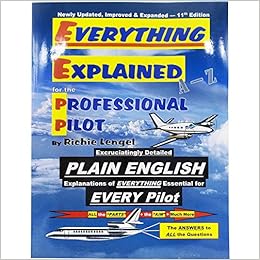MuseChaser
Pattern Altitude
- Joined
- Feb 23, 2019
- Messages
- 2,039
- Display Name
Display name:
MuseChaser
I have to confess, I don't really enjoy debate, arguing, disagreement, discord, and the like. Friendly competition, being excited about mutual achievements, helping each other with achieving those.. umm.. achievements... that all is joyful stuff. However, the increasing need shown by an increasing number of people in our society to be "right," and the corresponding need to prove that anyone who disagrees with them is "wrong," really sucks the joy out of life, and the life out of me. Discussions of personal rationales, interpretations, and beliefs can be enlightening, but really only when each person's motivation is to help the person with whom they're conversing, and not to "win" or prove themselves superior. I'm guilty, too.. when I feel strongly about a given stance, opinion, or fact that I'm sure of, it's hard to listen to folks say things you know, or at least feel strongly, are wrong.
Having said that, one of the things I've noticed in my relatively short time on this forum is that almost ANY discussion of the FARs is lengthy, potentially rancorous, and there's usually a ton of disagreement as to interpretation, especially in regards to letter-of-the-reg vs. intent. A great deal of the discussions stem from folks with limited familiarity of the regs misinterpreting them, or working from "my friend told me that..." type of information, or differing personal tolerances for "fudge factor," kind of like the difference between folks who do 56 mph in a 55, and those who are comfortable doing 62 mph. Technically, both are speeding and against the law.
What I'm getting at is that the FARs are so involved and, for those who don't particularly enjoy the process of parsing legalese, some of them can be difficult to interpret correctly. As pilots we have the responsibility to do so, but could they not be written in a much clearer manner, and pared down so that they were written towards goals and intent, rather than minutia?
A case in point... there's a recent thread about acting as a safety pilot under BasicMed. The regs allow for it, but only if the safety pilot is acting as PIC. If the safety pilot is NOT PIC and the pilot under the hood is, then the safety pilot must hold at least a third class medical because he is then a required crew member. Obviously, that makes no sense, and is not the intent of the regulations, but there it is.
In the interest of collegial harmony, it'd be great if the FARs could be "tightened up".. maybe an "FAR for Dummies".. never liked the title of that series, but the intent is good!
OK... rant off.
Having said that, one of the things I've noticed in my relatively short time on this forum is that almost ANY discussion of the FARs is lengthy, potentially rancorous, and there's usually a ton of disagreement as to interpretation, especially in regards to letter-of-the-reg vs. intent. A great deal of the discussions stem from folks with limited familiarity of the regs misinterpreting them, or working from "my friend told me that..." type of information, or differing personal tolerances for "fudge factor," kind of like the difference between folks who do 56 mph in a 55, and those who are comfortable doing 62 mph. Technically, both are speeding and against the law.
What I'm getting at is that the FARs are so involved and, for those who don't particularly enjoy the process of parsing legalese, some of them can be difficult to interpret correctly. As pilots we have the responsibility to do so, but could they not be written in a much clearer manner, and pared down so that they were written towards goals and intent, rather than minutia?
A case in point... there's a recent thread about acting as a safety pilot under BasicMed. The regs allow for it, but only if the safety pilot is acting as PIC. If the safety pilot is NOT PIC and the pilot under the hood is, then the safety pilot must hold at least a third class medical because he is then a required crew member. Obviously, that makes no sense, and is not the intent of the regulations, but there it is.
In the interest of collegial harmony, it'd be great if the FARs could be "tightened up".. maybe an "FAR for Dummies".. never liked the title of that series, but the intent is good!
OK... rant off.




 ), and so the FAA wrote it EXACTLY as Congress forced them to and did not allow one iota more. Well, I guess Jim Inhofe probably never had to split time with anyone, so that wasn't considered while they were writing the legislation, and here we are.
), and so the FAA wrote it EXACTLY as Congress forced them to and did not allow one iota more. Well, I guess Jim Inhofe probably never had to split time with anyone, so that wasn't considered while they were writing the legislation, and here we are.